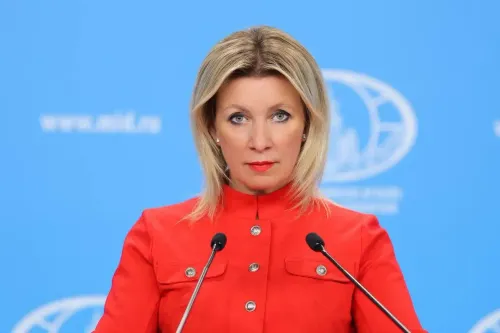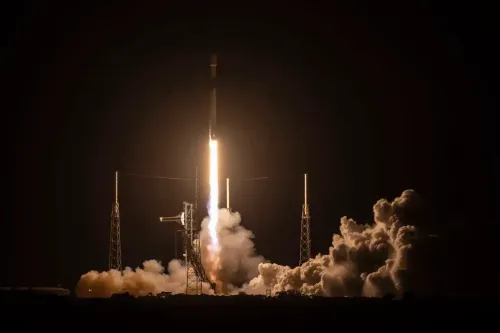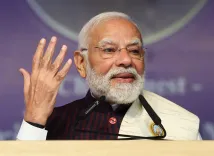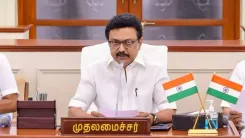Does US VP Vance Hope His Wife Usha Will Convert to Christianity?
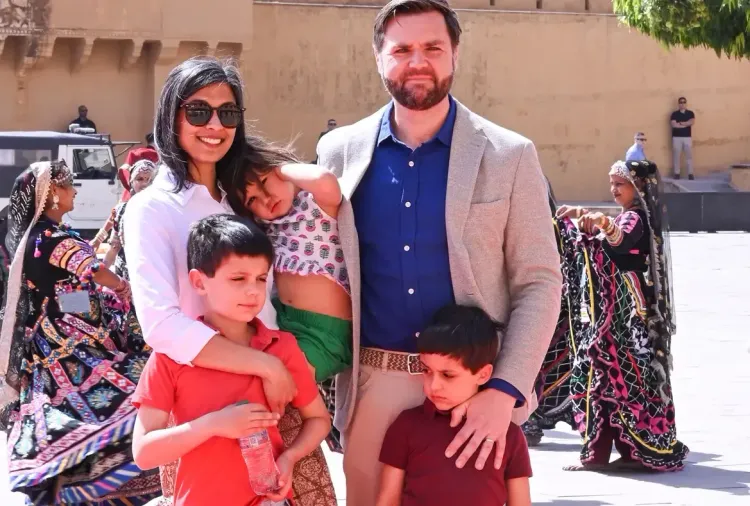
Synopsis
Key Takeaways
- Respect for Free Will: Vance emphasizes that God grants everyone the right to choose their beliefs.
- Open Communication: Engaging in discussions about faith is vital in interfaith marriages.
- Personal Journey: Vance's faith evolved from agnosticism to Catholicism over the years.
- Family Unity: They have agreed to raise their children in the Christian faith.
- Understanding Differences: Navigating interfaith dynamics requires mutual respect and dialogue.
New York, Oct 30 (NationPress) US Vice President JD Vance expressed his hope that his wife, Usha, who is a Hindu, would embrace Christianity like him. However, he emphasized that if she chooses not to, he remains untroubled as he believes that God grants everyone free will.
During an open discussion about family and faith on Wednesday, Vance shared, “In front of 10,000 of my closest friends, I do hope that she is eventually inspired by the same things that moved me toward the Church.”
“I genuinely wish for that because I hold strong to the Christian gospel, and I hope my wife will come to see it similarly. Nonetheless, if she doesn't, it does not present an issue for me, as God allows everyone to make their own choices,” he stated.
Vance made these remarks at a Turning Point rally in Oxford, Mississippi, where a woman of Indian heritage inquired about the family's interfaith dynamics.
Turning Point was founded by Charles Kirk, a conservative Christian activist who was tragically killed the previous month.
He further noted that navigating religious differences is significant in unions where partners belong to different Christian sects or in cases involving believers and non-believers.
“Each couple must find their own solution,” he remarked. “For us, the foundation is our friendship. We engage in discussions about our beliefs. Consequently, we have agreed to raise our children as Christians.”
Vance recounted meeting Usha at Yale University when he identified as an “agnostic or atheist,” which he believed was also her perspective.
She was raised in a Hindu family but was not deeply religious, he noted.
Over time, Vance returned to his Christian roots within Protestantism but chose to convert to the Catholic Church three years ago, diverging from the sects prevalent among President Donald Trump's followers, and he is now a devoted member.
Despite some Christian fundamentalists expressing concerns regarding his Catholic affiliation and his marriage to a Hindu, Vance mentioned that Usha attends church with their family every Sunday and that “Usha shares a closer connection with the priests who baptized me than I do.”
“They engage in discussions about faith,” he added.
Regarding religious freedom and diversity, he asserted, “One of the key tenets of Christianity is the respect for free will.”
Earlier, he emphasized that true Christianity upholds the freedom of religion as it is a divine right granted to everyone to choose their own path.
He argued that the initiatives by certain Republican states and leaders to promote prayer and Christian discussions do not breach the Constitution, as they do not compel anyone to pray. He suggested that the constitutional prohibition merely prevents the establishment of an official government church, akin to those that existed at the time of Independence.


